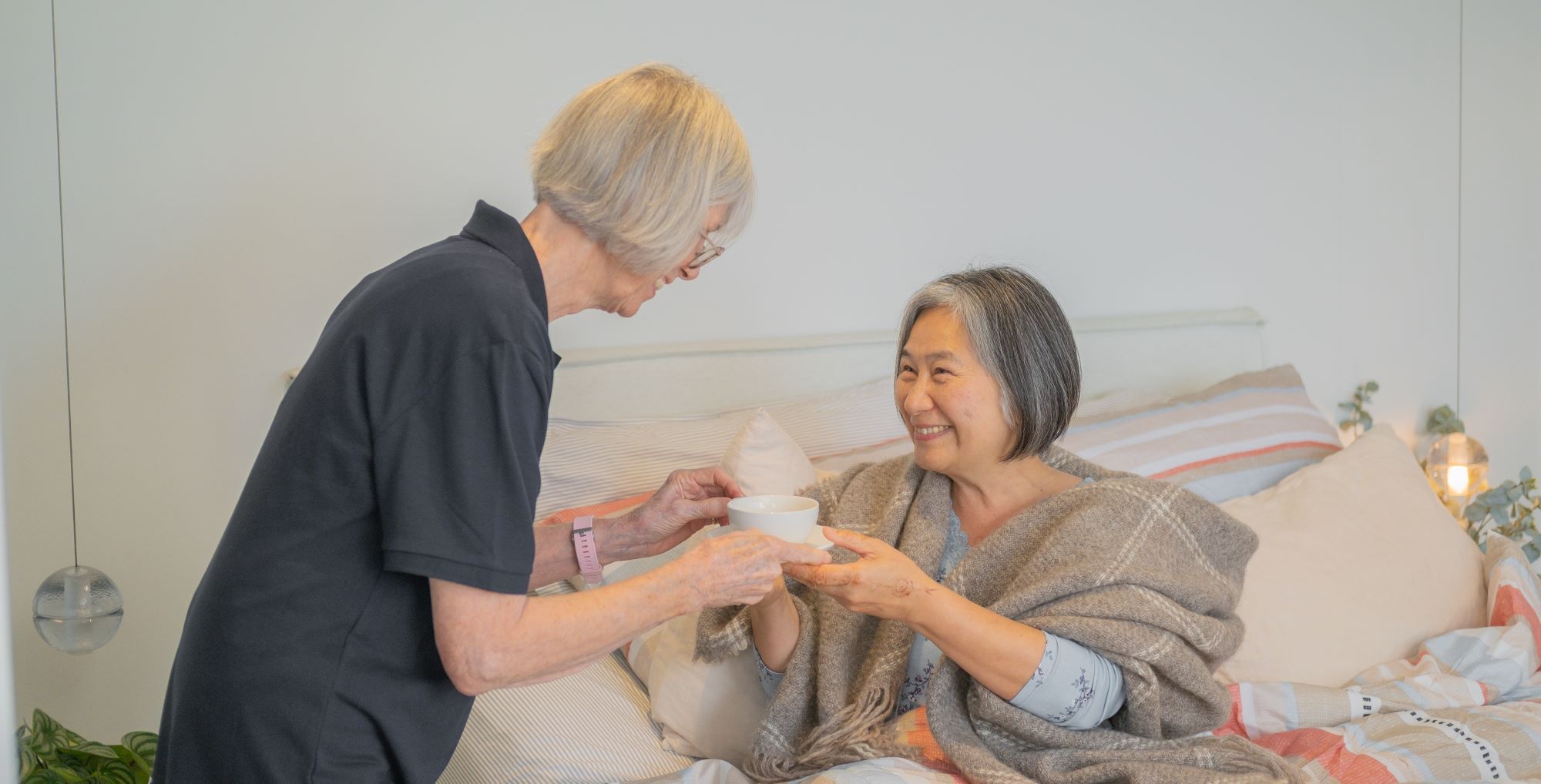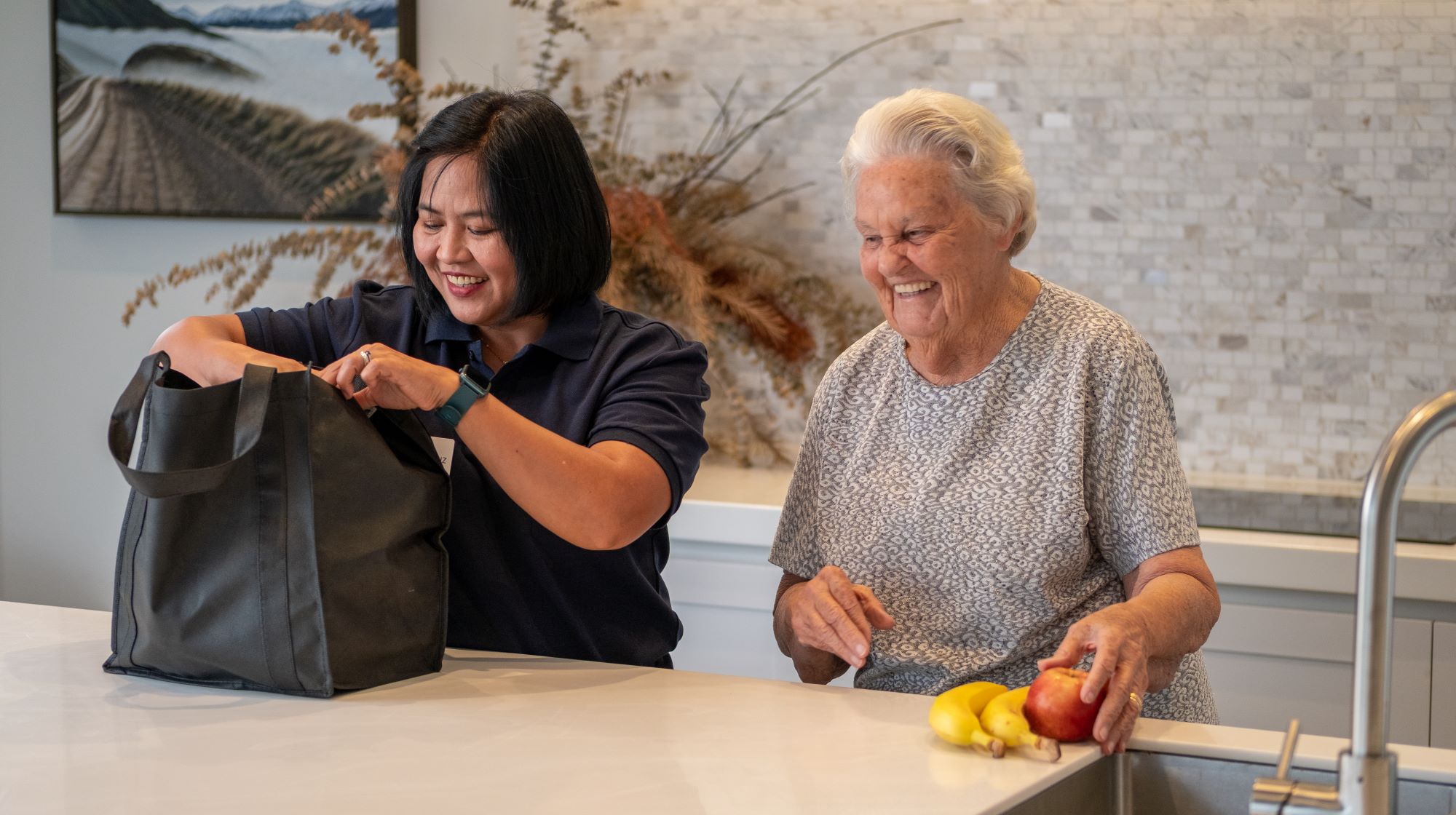Personal Care and Assistance

Whether it’s providing support with elderly assistance or empowering individuals with a disability or injury to thrive in their own home, our team’s personal care services offer invaluable assistance to many New Zealanders. From bathing and dressing to meal preparation and medication reminders, personal care assistance can truly enhance daily living.
What’s included in Personal Care?
At HealthCare NZ, our personal care assistance can make a transformational change for individuals who require extra support to thrive in their own home and community. Our dedicated support workers offer tailored support to meet the unique needs of each person. Our personal care services encompass a wide range of day-to-day assistance, including:
- Bathing/showering
- Washing & drying hair
- Shaving
- Dressing & undressing
- Toileting
- Medication reminders
- Meal preparation & assistance
When is Personal Care assistance needed?
Choosing to access in-home personal care services is a deeply individual decision that is influenced by unique circumstances. It typically involves seeking additional assistance to ensure a comfortable and fulfilling life in your home. The specific combination of support needed varies for each person, which is why we offer a wide array of personal care services. Here’s a few key reasons why someone may benefit from extra help around the home:
General household tasks
For seniors, individuals with injuries, or those with disabilities, managing regular housework and maintenance at home can pose challenges. Whether it’s due to limited energy or safety concerns, HealthCare NZ support workers are here to help keep your home clean and safe for you to live in.
Personal hygiene and grooming
An integral part of promoting dignity and comfort for individuals in their own homes is facilitating the maintenance of personal hygiene and grooming. Our compassionate and skilled support workers are prepared to offer assistance with showering, toileting, dressing, and other fundamental tasks that uphold personal dignity. If challenges due to injury, disability or ageing make it difficult to manage these tasks independently, HealthCare NZ can provide sensitive support.
Meal preparation
Maintaining healthy eating habits is an essential part of fostering personal wellbeing, and we understand that some individuals may require assistance with meal preparation. Our team is dedicated to supporting you in overcoming any obstacles to enjoying nutritious meals. We are committed to providing the care necessary for you to live a fulfilling and healthy life.

Personal in-home care vs residential care
Individuals seeking support to enhance their quality of life have two primary options: in-home personal care and residential care. Each model has its advantages, and the choice between the two depends on individual circumstances and preferences. Explore the following breakdown to determine which option may be the most suitable for you or your loved one:
In-home Personal Care
- Personalised care at home: Receive the support you need to thrive in the familiar comfort of your home. Many individuals find they can maintain their independence and stay in the home they cherish with the assistance of support workers who deliver care right to their doorstep.
- Independence as a priority: In-home personal care prioritises empowering individuals to remain as independent as possible – whether that’s occasional support or regular assistance with day-to-day tasks. The goal is to enable individuals to live life to the fullest.
- Tailored to your preferences: Personal care offers the flexibility for individuals to customise their care according to their needs. From choosing the timing and type of care to providing input on selecting the ideal support worker, personalised care puts you in control of your care journey.
Residential care
- Community living environment: Residential care offers a communal setting that fosters social interactions and opportunities for individuals in care to engage with peers. Shared meals, activities, and outings can enhance a sense of belonging and connection.
- Access to more specialist care: Residential care can provide access to a range of specialised services, particularly beneficial for individuals with mobility challenges, cognitive impairment, or chronic illnesses. Some residential care facilities may also have medical staff available for additional support.
- Full time care: Unlike personal care, which typically involves part time support, residential care offers full time care, making it suitable for individuals with complex needs.
While residential care – with its extra support and specialised services – may be suitable for some individuals, many prefer receiving support in their own home with a personalised care plan that meets their specific needs. This emphasis on tailored care and the comfort of familiar surroundings often leads individuals to choose personal care.

